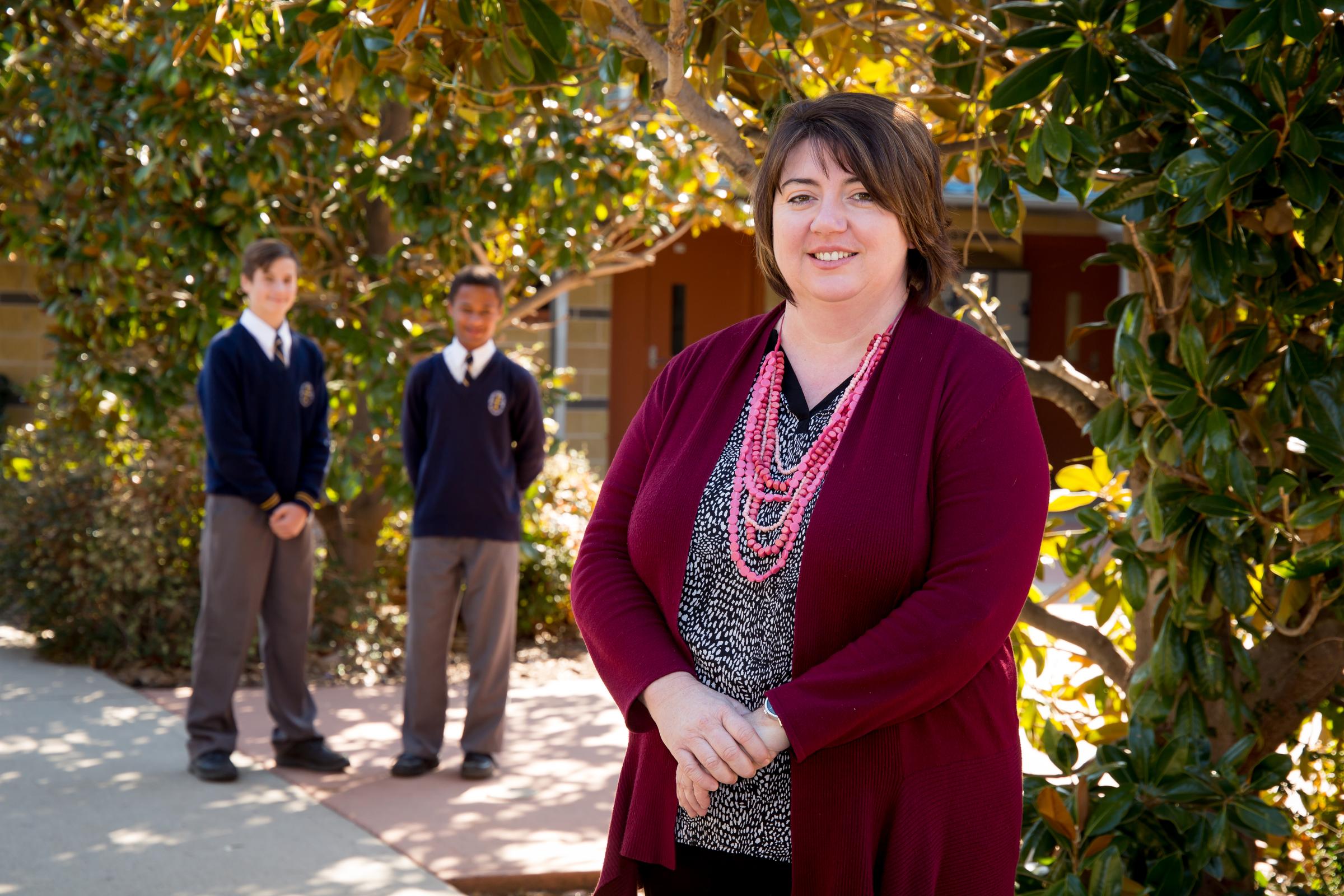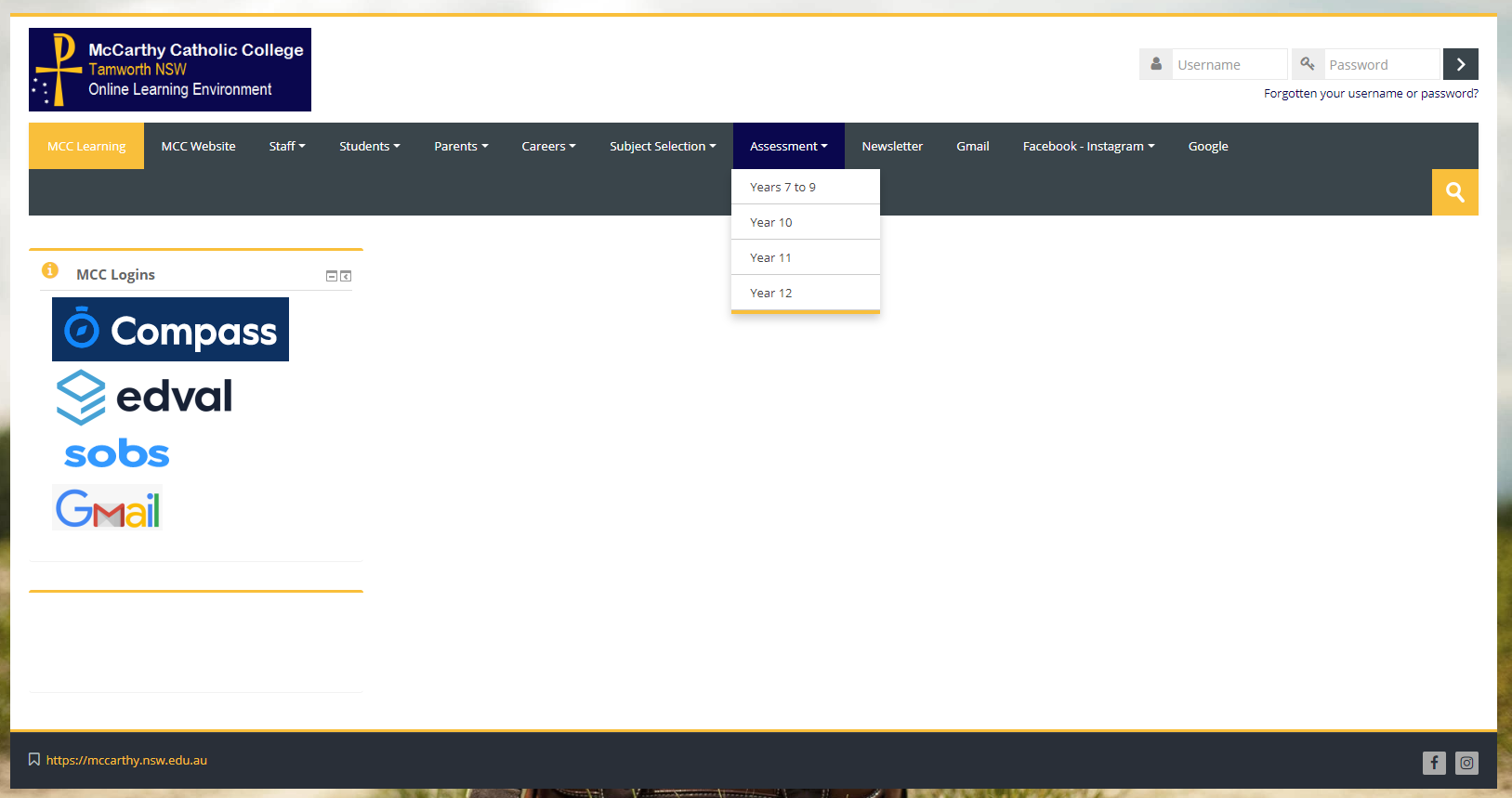Leader of Teaching & Learning

Assessment Schedules
Assessment at McCarthy is used to support and monitor student learning, evaluate the effectiveness of teaching and learning programs and diagnose student needs. In Years 11 and 12 students receive a published copy of the Assessment Schedules for each course they are entered into.
These schedules are available on our McCarthy website under the Assessment Tab. I would encourage all students to have these clearly displayed in their study areas and to utilise the planning tools at the front to assist their organisation and planning. There is assessment information for Years 7 - 10 under these same headings.
https://learning.mccarthy.nsw.edu.au/#
NAPLAN Omnibus
Year 7 students will have a practice test for NAPLAN Online. The practice tests will provide students with an opportunity to become familiar with the type of questions they will experience in the online platform. This will be in the Hall on the 23 March and is a requirement by NESA. The official testing window is 12-22 May. Students will be issued a NAPLAN timetable later this term.
Study Skills Tip for March - top tips for memorising notes
Many students find it really difficult to cope with the memorisation that can be needed for tests and exams. Of course you can’t just rote learn and regurgitate, you need to be able to apply the skills of what you have learnt. However there is also a certain amount of memorisation of content, formulas and definitions for example that will be necessary. So how can students make this process easier?
- Make your notes as brain-friendly as possible, point form, tables, diagrams and no big long sentences or paragraphs;
- Start the memorisation process of your notes early, don’t wait until just before the test or examination;
- Memorisation involves testing yourself over and over and over and over. So read a section, then see what you can say or write down without looking. Then go back and see what you got wrong or didn’t know. Put a pencil mark next to these bits;
- Now focus on the bits you didn’t know. Say them out loud, repeat them to yourself, write them down a few times;
- Then test yourself on those bits again and see if you remembered more this time;
- Do this over and over and over again. Then do it one more time again;
- Make flashcards or use a flashcard App on your phone to create flashcards on the parts you find hard to remember. Review these every day before the test;
- Make a list of the key concepts you find hard to learn and each night read through them just before you go to sleep and first thing when you wake up as these are powerful memory times;
- Do lots of practise questions without looking at your notes or the answers to see if you can a) remember and b) apply the information. Review the things you did not remember again; and
- Your job is to keep testing yourself in order to find out which bits have not stuck in your memory yet so you can review these until they do.
You can learn more about how to be a more effective student at www.studyskillshandbook.com.au, our school’s subscription details are -
Username: mccarthycc
Password: 77success
Mrs Raelene Maxworthy - Leader of Teaching & Learning

